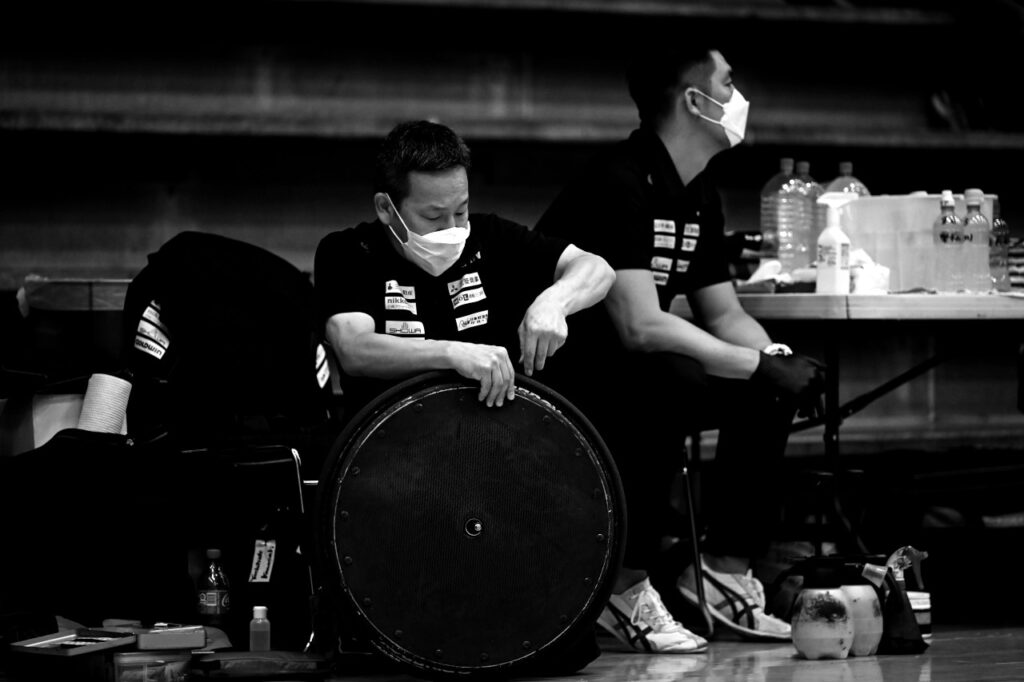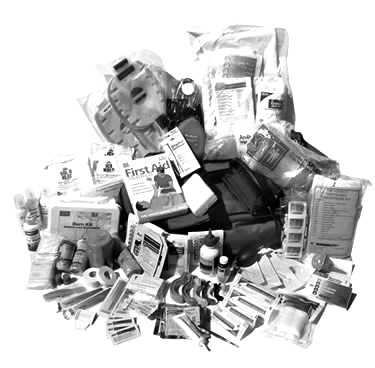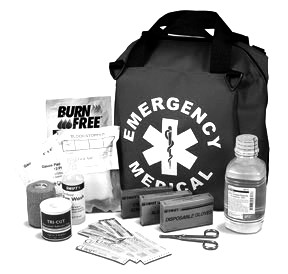Emergency Action Plan
An essential step towards becoming Wheelchair Rugby Ready is planning for emergencies. This means that there should be a basic plan in place including the following:
- Having the correct medical equipment in place and ensuring that appropriately trained personnel (i.e. medical practitioner, other healthcare professional such as a physiotherapist, massage therapist or trained first-aider) are present
- Access to a telephone
- A record book for recording incidents where first aid and/or treatment has been given
- Emergency telephone numbers are clearly displayed
- Identification of roles and responsibilities in the event of injury on the court, e.g. the first responder, the person who calls for additional help, etc.

Essential Medical Equipment
A first aid kit should typically include:
- Scissors (blunt ended)
- Surgical gloves
- Gauze (alcohol) swabs
- Nasal pack
- Towel
- Compression bandages (5cm, 7.5cm, 10cm)
- Sterile gauze bandage
- Adhesive skin closures, (e.g. Band Aid)
- Elastic adhesive bandages (2.5cm, 5cm)

- Petroleum jelly
- Antiseptic healing cream
- Antiseptic ointment / spray
- Tincture of benzoin
- Irrigation solution (sterile eyewash)
- Wound dressings
- Triangular bandages
- Skin care pad
- Ice pack and ice
- Water bottle
- Adhesive dressings
- Adhesive tape

All these items should be located in a pre-designated area near the teams’ benches.
First Aid Room
Ideally, a Wheelchair Rugby Ready first aid room will be located adjoining the playing area at the venue and should have:
- Access to a telephone
- Access for a stretcher
- Access for an ambulance
- Adequate lighting and climate control
- A sink with hot and cold running water
- Floors that are non-slip, impervious and washable
- Emergency telephone numbers clearly displayed
- A record book for recording incidents where first aid has been given
- An examination table with waterproof protection, clean pillows and blankets
- Wall linings and worktops that can be easily cleaned, to comply with hygiene and infection control requirements
- Appropriate safe storage for medical equipment and first aid materials, adequate arrangements for the disposal of clinical waste and sharps, e.g., needles
- Automatic external defibrillator
Disclaimer
Wheelchair Rugby is a physical contact sport and there are inherent risks associated with participating in Wheelchair Rugby-related activities. Accidents can happen and may happen to you. The IWRF does not accept any responsibility or liability in negligence or otherwise in relation to any injury, loss or damage suffered by persons seeking to replicate activities demonstrated in this IWRF Wheelchair Rugby Ready product or participating in Wheelchair Rugby-related activities generally.
